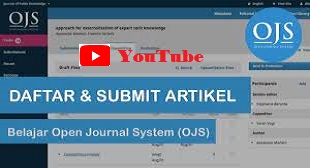Manajemen Pembinaan Kegiatan Ekstrakurikuler dalam Peningkatan Prestasi Santri
Keywords:
Management of Extracurricular Activities, Student AchievementAbstract
Extracurricular activities are activities carried out outside the classroom and outside class hours (curriculum) to develop the potential of human resources (HR) that are owned, both related to the application of the knowledge they have acquired and in a special sense to guide them in developing existing potential and talents. within himself through obligatory and optional activities. Therefore, extracurricular is personality development outside the classroom. Mature and comprehensive personality development in the context of developing extracurricular activities is certainly in the stages of an ability. The purpose of this extracurricular activity is to form the power of creativity so that the theoretical learning atmosphere can be balanced. An educator must know more about the talents and interests of students, the point is that they can be channeled.
The objectives of this study are 1. To determine the Management of Extracurricular Activities Development 2. To determine the Improvement of Student Achievement 3. To determine the Management of Extracurricular Activities to Improve Student AchievementThis research is a qualitative research using a case study approach which aims to find out something in depth. Data collection techniques were carried out by means of observation, interviews, and documentation. Data analysis went through three stages, namely data reduction, data presentation, and verification.The results showed that (1) the management of extracurricular activities at the Putri Walisongo Islamic Boarding School in Cukir Diwek Jombang had been carried out well from planning to evaluation and supervision or controlling (2) improving the performance of students at the Putri Walisongo Islamic Boarding School in Cukir Diwek Jombang to accommodate the needs of the students. according to their talents and interests (3) in which there are supporting factors for the management of extracurricular activities including Ustadz/ah who are very competent in their fields, adequate facilities and infrastructure, as well as the enthusiasm of students. The inhibiting factor for the management of extracurricular activities is the adjustment of the extracurricular activity schedule which always collides with the schedule of the Ustadz/ah.
Downloads
References
Agustina K, Suci Tiandari & Suwandi. (2020). Model of Library Management and Services in Islamic Educational Institutions: “Kebun Buku†Library as Best Practice. International Conference on Education Management and Sharia Economics (ICO EDUSHA 2020). Volume 1, Issue 01, 31-39. Retrieved from https://prosiding.stainim.ac.id/index.php/prd/article/view/78
Bulhayat, dkk. (2022). Pengantar Manajemen Pendidikan Islam. Malang: CV. Literasi Nusantara Abadi
Fauziah, Siti Fa’iz & Suwandi. (2021). Pengaruh Kompetensi Sosial Guru terhadap Sikap Sosial Siswa di Madrasah Tsanawiyah Salafiyah Syafi’iyah Seblak Diwek Jombang. EDUDEENA: Journal of Islamic Religious Education. Volume 5, Issue 1, 11-20. Retrieved from: https://jurnalfaktarbiyah.iainkediri.ac.id/index.php/edudeena/article/view/273
Kompri. (2018). Manajemen & Kepemimpinan Pondok Pesantren. Jakarta: Prenadamedia Group.
Kurniawan, Asep & Suwandi. (2017). Studi Proses Pembentukan Pendidikan Budi Pekerti melalui Pembelajaran Agama Islam di SMA Negeri 3 Jombang. Jurnal MENARA TEBUIRENG. Vol 13, No 01, 219-235, Retrieved from http://ejournal.unhasy.ac.id/index.php/menaratebuireng/article/view/950
Muh. Hambali dan Mu’allimin. (2020). Manajemen Pendidikan Islam Kontemporer (Strategi Pengelolaan Pendidikan Islam di Era 4.0. Yogyakarta: IRCiSoD.
Nana Syaodih Sukmadinata. (2010). Metode Penelitian Pendidikan. Bandung: Remaja Rosdakarya.
Sugiyono. (2019). Metode Penelitian Kuantitatif, Kualitatif dan R&D. Bandung: Alfabeta,.
Suwandi & Khoirul Umam. (2021). The Role of Leadership in Forming Organizational Culture in Islamic Education Institutions. Jurnal EVALUASI. Vol. 5, No. 2, 240-254. Retrieved from https://e-journal.staima-alhikam.ac.id/evaluasi/article/view/732
UU Sistem Pendidikan Nasional. (2011). Jakarta: Sinar Grafika.





























